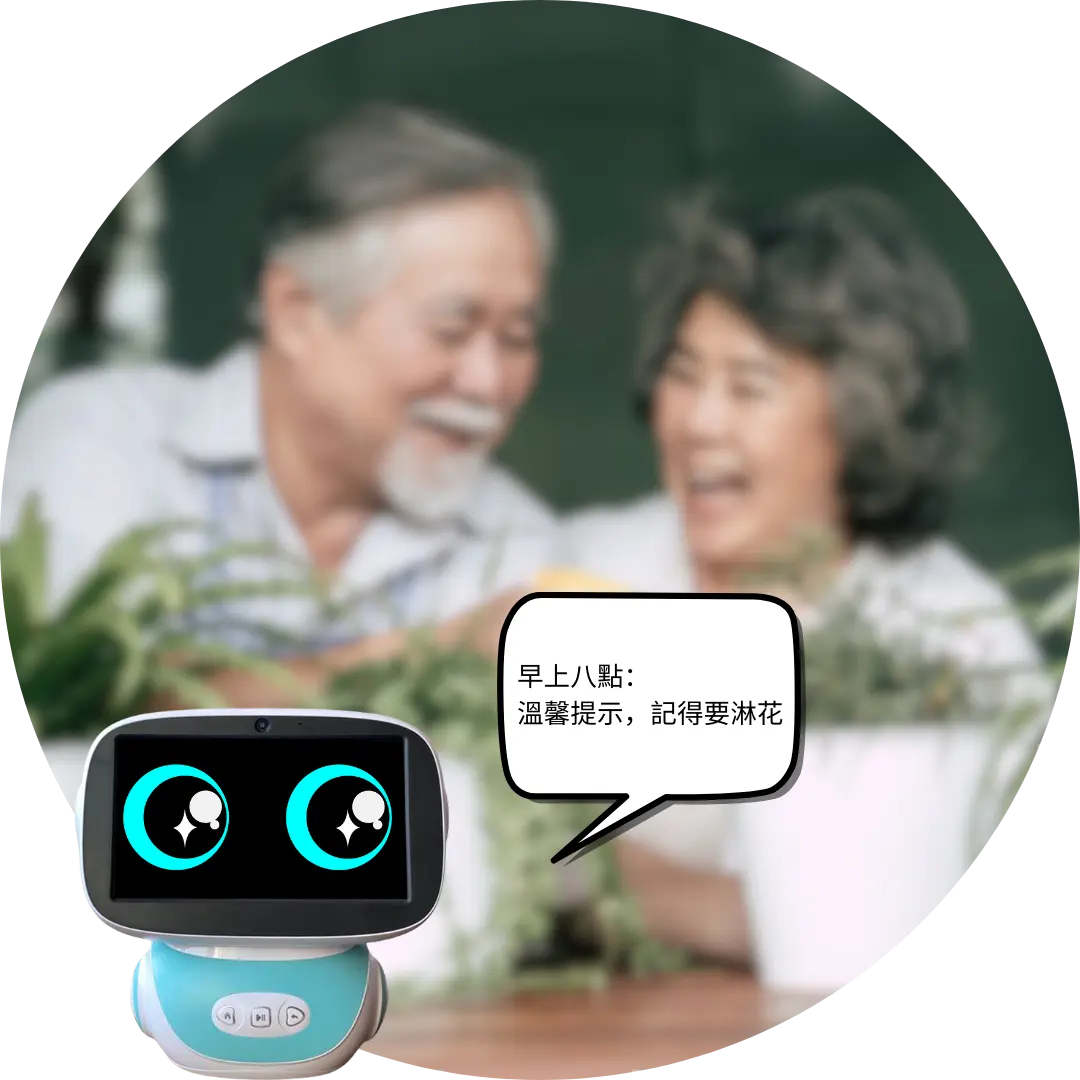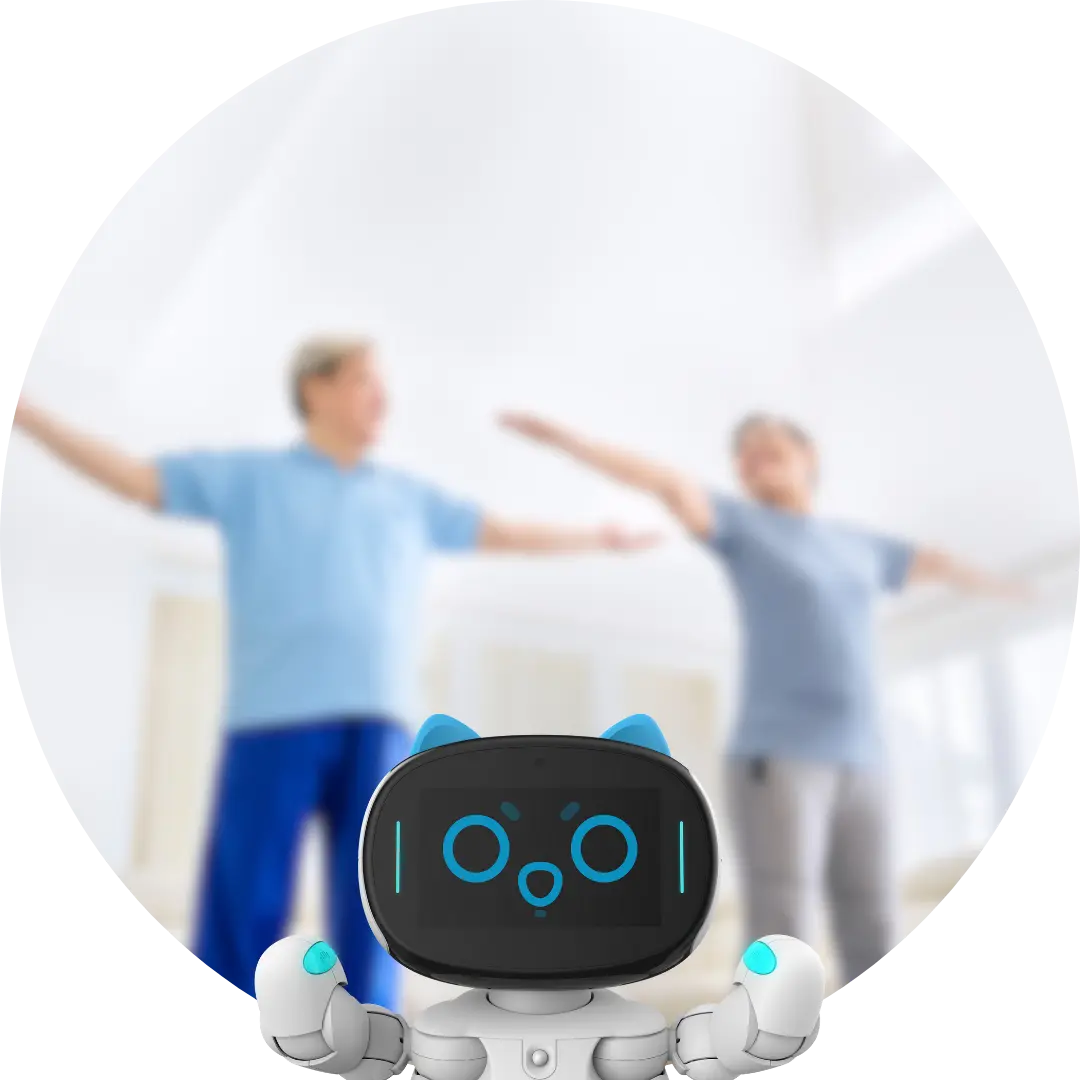
Dementia, commonly known as senile dementia or neurodegenerative disorder, is one of the most prevalent brain degenerative diseases among the elderly. It imposes significant burdens on patients' lives, families, and presents formidable challenges to the social healthcare system. According to data from the Department of Health, for every 10 individuals aged 70 or above in Hong Kong, one person is affected by dementia. Additionally, for every three individuals aged 85 or above, one person is affected by dementia. These statistics are alarming and highlight the escalating severity of dementia in societies grappling with aging populations.
With the projected population of dementia patients reaching as high as 280,000 in Hong Kong by 2036, it is crucial that we take immediate action to address this issue. In this era of rapid technological advancement, the development of technology brings a ray of hope for individuals with dementia and their caregivers.
Artificial intelligence (AI) is a term that has gained widespread recognition across various industries and sectors. With the assistance of AI, life can become more convenient and efficient. Technology and the elderly may seem incompatible, but in reality, the development of technology and the lives of older adults are closely intertwined.
Individuals with dementia experience a gradual decline in memory and cognitive function, accompanied by significant emotional changes and a loss of self-care abilities, often reverting to a dependent state similar to infancy. Common symptoms include:
- Declining memory: Patients begin to experience memory loss, struggling with familiar tasks such as forgetting directions home or how to use an ATM for withdrawals.
- Carelessness in daily life: They become more forgetful in routine activities, such as forgetting to lock doors or turn off faucets.
- Dependence on others for daily habits: Personal grooming and self-care habits require reminders or assistance from family members.
- Distorted sense of time: Patients start to lose their perception of time, resulting in confusion between day and night.
- Emotional changes: Their mood becomes low and they may be unwilling to spend time with family members.
The development of "Intelligent Companion Robots" stemming from artificial intelligence has provided support and assistance for individuals with cognitive impairment:
1. Memory assistance: Intelligent companion robots can be programmed to set reminders for tasks such as medication schedules, appointments, and other important events, helping patients remember essential events and daily tasks.

2. Simple conversation and interaction: Intelligent companion robots can engage in simple conversations and interactions with patients, providing emotional support and companionship. They can answer patients' questions, listen to their stories, and share jokes and small anecdotes with them.

3. Entertainment: Intelligent companion robots can play music, stories, radio programs, and even lead exercise routines, offering entertainment for individuals with cognitive impairment.

4. Facilitate social interaction: Intelligent companion robots can connect to the internet and social media platforms, helping patients with cognitive impairment stay connected with their family, friends, and community.

Intelligent companion robots can improve the quality of life for individuals with dementia and alleviate the burden on caregivers. With continuously progressing and innovating in technology. With continued technological advancements and innovation, we can anticipate the future development of intelligent companion robots that will meet the specific needs of individuals with cognitive impairment, providing them with comprehensive and personalized support and care.
